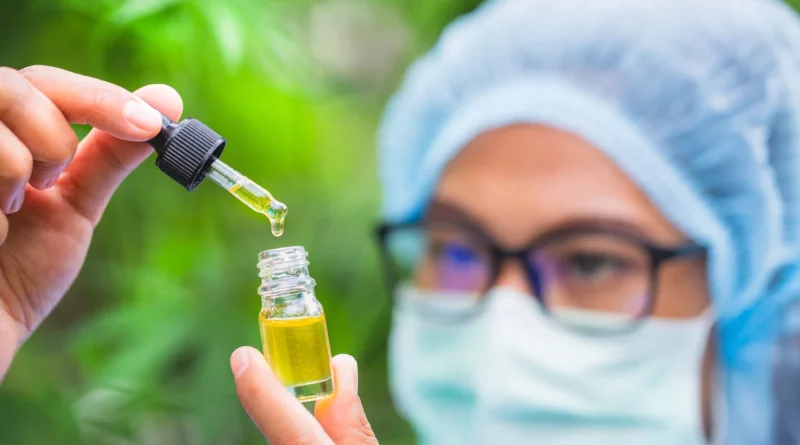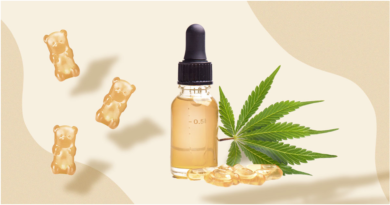CBD and CBG: Pros and Cons of Short-term and Long-term Use
Cannabidiol, or CBD is a chemical compound found in the cannabis plant. It doesn’t contain any psychoactive elements like THC. That’s why it is non-intoxicating and can be used to treat a number of medical conditions.
Cannabigerol, or CBG, on the other hand, shares some similarities with THC, but it doesn’t have any psychoactive effects. In fact, most people don’t even know about the existence of CBG at all.
That’s because, unlike CBD, CBG does not usually exist on its own in nature. Instead, it’s considered a mother molecule to other cannabinoids such as THC and CBD. All the other cannabinoids are extracted from CBG.
Benefits of CBD and CBG:
Table of Contents
While there are pros and cons to both short-term and long-term use, research suggests that CBD or CBG oils may have a range of potential benefits for people with anxiety, diabetes, cancer, pain, allergies, antibiotic resistance, depression, and more.
Research has also shown that CBD oil tincture can help lessen seizures in people who suffer from epilepsy. A high-quality CBD + CBG tincture can be obtained from authenticated resources like https://joyorganics.com/products/organic-cbg-cbd-tincture.
Side Effects of CBD and CBG:
There are a number of potential side effects associated with the use of CBD and CBG. Some of these may be mild, while others are severe. For example, short-term use may result in drowsiness, fatigue, nausea, or vomiting, as well as an increased heart rate.
Rare cases have also shown an allergic reaction that can be severe in some people. There is also some evidence that prolonged use could lead to drug dependence and addiction in certain individuals.
In other words, it’s possible that you might feel like you need more and more of it just to function normally. Additionally, CBD oil may interact with other medications such as blood thinners, anti-seizure medications, or antidepressants.
The main downside to using this type of cannabis is that you need to be cautious when taking it if you are pregnant or breastfeeding. It can also cause drowsiness. Talk to your doctor before using if you’re currently taking any prescription drugs.
CBD, CBG, and THC:
CBD is the most common cannabinoid found in cannabis, but it is often misunderstood. CBD stands for cannabidiol. It is a cannabinoid found in cannabis that lacks the psychoactive effects of THC. When taken properly, CBD will not alter a person’s state of mind.
It is completely non-psychoactive, and it does not have any harmful side effects. CBD has shown to have many medical benefits. And while short-term use of CBD can be good for some people with anxiety or pain problems, long-term use may cause other problems like addiction or irritability due to lack of THC.
The same goes for CBG. Just like CBD, CBG has non-psychoactive properties, which make it perfectly suitable for long-term use. CBG is considered the mother of cannabinoids because all other cannabinoids are synthesized from it.
THC, on the other hand, is completely different from CBD and CBG. It is also found in the cannabis plant, but it has psychoactive and intoxicating properties. THC is also known to have some medical benefits but its harmful effects outweigh its potential benefits.
CBD Vs. CBG: How are They Used?
Both cannabinoids CBD and CBG can be used in different ways, but generally, it’s more difficult to find concentrated doses of CBD. Also, they can be used for similar health problems because they have the same medical benefits.
However, in some cases, these benefits may differ slightly. For example, CBG can be more efficient than CBD in treating migraines and muscle spasms. On the other hand, CBD can be more useful in relieving inflammation because it is less psychoactive than CBG.
When consumed orally, a lower dose may be sufficient to get the desired result. A higher dose of CBD is necessary for those with severe forms of epilepsy, psychosis, or muscle spasms. Not only do the health benefits of both chemicals differ slightly but also their side effects.
Unregulated use of CBG may result in dry mouth and palpitations, while muscle fatigue and tiredness are associated with CBD. To achieve the desired effect quickly, high concentrations are usually recommended. However, for long-term benefits, lower concentrations are often enough over time.
CBD Vs. CBG: Accessibility:
While both CBD and CBG can be derived from hemp, the CBD products on the market have become more popular in recent years. Compared to CBD, CBG is very scarce in the market due to its production difficulties.
As a result, research is limited on how short-term or long-term use affects people. However, because of their potential to reduce inflammation and help with seizures, they are often used for multiple purposes. CBG may also be good for those who suffer from Parkinson’s disease.
There may be some benefits to taking either one of these compounds, but further research needs to be done before any conclusion can be drawn.
CBD Vs. CBG: Which is Better?
CBD is often taken as a preventative measure or to ease minor symptoms in the short term. But what happens when you take CBD for an extended period of time? And what about the long-term use of CBG? Here’s what you need to know.
When it comes to taking CBD, studies have shown no side effects or adverse events associated with short-term use.
Some people may experience tiredness after taking CBD, but this can be prevented by adjusting your dosage or reducing the frequency of usage. Side effects such as these will usually lessen after a few days and will no longer pose any danger to your health.
However, some research indicates that prolonged use of CBD might cause problems for those who suffer from underlying psychiatric disorders like schizophrenia.
CBD Vs. CBG: What do you Need to Know?
Knowing your cannabis products will help you choose the right product, but understanding quality can be hard to assess.
Remember that there are a lot of factors that go into making CBD and CBG, such as whether or not it is lab-tested for purity. If it is organically grown, and whether any pesticides were used during cultivation.
It is also helpful to know how much CBD or CBG is in a product. For example, CBD oil may contain THC at low levels (under 0.3%). If you have allergies or sensitivities to these compounds, make sure you read the label first before purchasing.
Read on: Usglobalworld.com




